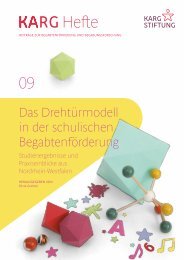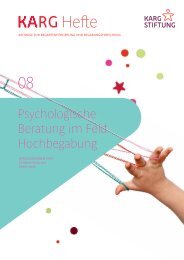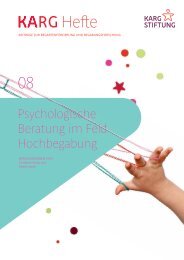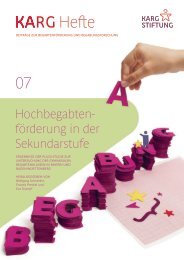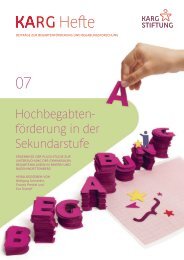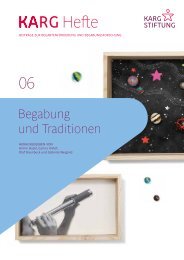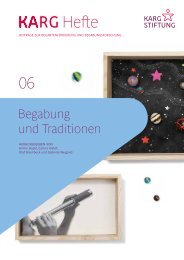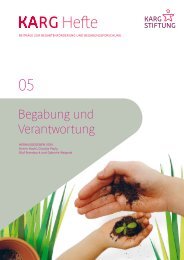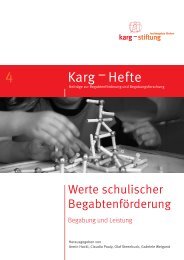FAQS: Frequently asked questions about giftedness
The Karg Foundation receives a lot of questions on the subject of giftedness—FAQs (Frequently Asked Questions)—far more often indeed than it did ten years ago. And this is a good thing! Many people involved in the educational processes of children have come to realize that giftedness can also be a fundamental personality trait of children and adolescents. The Karg Foundation wants to answer the questions you may have not only as educational and psychological professionals in educational institutions or working as educational providers, policy makers, or in training and further education institutes, but as parents and gifted people also: What is giftedness? How can it be identified? Who can provide advise for gifted children and their families? How can they be supported in the best possible way?
The Karg Foundation receives a lot of questions on the subject of giftedness—FAQs (Frequently Asked Questions)—far more often indeed than it did ten years ago. And this is a good thing! Many people involved in the educational processes of children have come to realize that giftedness can also be a fundamental personality trait of children and adolescents.
The Karg Foundation wants to answer the questions you may have not only as educational and psychological professionals in educational institutions or working as educational providers, policy makers, or in training and further education institutes, but as parents and gifted people also: What is giftedness? How can it be identified? Who can provide advise for gifted children and their families? How can they be supported in the best possible way?
Create successful ePaper yourself
Turn your PDF publications into a flip-book with our unique Google optimized e-Paper software.
How can support be provided<br />
at the Kita?<br />
Early life experiences and learning are especially<br />
important. Children never learn as easily and quickly as<br />
they do in the early years. This insight has also led to a<br />
steady increase in the importance of the Kita as an educational<br />
institution in recent years.<br />
In many cases, gifted children develop particularly<br />
intense learning demands at an early age, some of which<br />
they assert persistently while still in the Kita setting. Thus,<br />
Kitas are important places of support for gifted children,<br />
where they can experience a variety of learning opportunities<br />
that provide an important basis for the further development<br />
of their individual abilities and talents. Compared<br />
to schools, an advantage of Kitas is that they are very<br />
flexible when it comes to the composition of (small)<br />
groups and in choosing and structuring topics for children.<br />
Based on their experience and their knowledge of many<br />
different children, Kita educators can often easily recognize<br />
when children exhibit interests and abilities that are unusual<br />
for their age—and they can offer these children<br />
targeted stimulation and support. Providing group spaces<br />
with ample resources, including materials that may not be<br />
considered “age appropriate” (e.g., books for beginning<br />
readers, microscopes for children, more challenging board<br />
games) can support gifted development. Because of the<br />
mixture of ages in Kita groups, the younger children can<br />
be particularly supported by including them early on in<br />
activities for older children, for example, in activities and<br />
programs intended for preschool children.<br />
An in-depth look at the topic of “support in the Kita”<br />
is provided in the Karg Foundation’s special edition “<strong>Frequently</strong><br />
Asked Questions (FAQs) <strong>about</strong> <strong>giftedness</strong> in early<br />
childhood”.<br />
https://www.fachportal-hochbegabung.de/<br />
faqs-early-childhood/<br />
74 75







